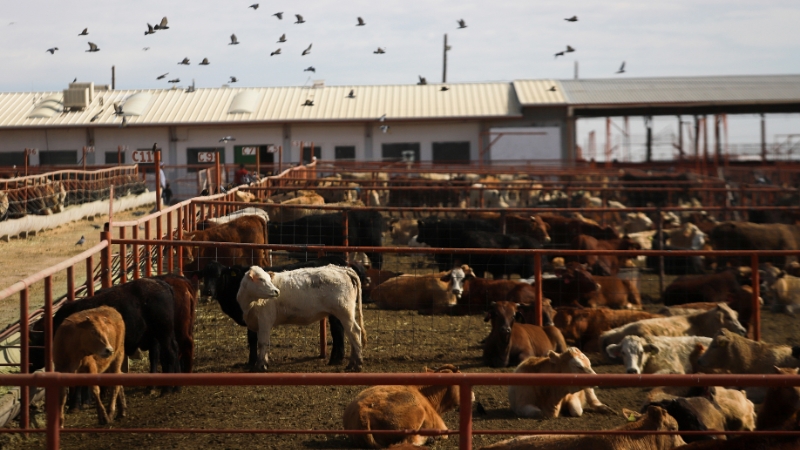 Image Credit: Anadolu / Contributor / Getty Images
Image Credit: Anadolu / Contributor / Getty Images The first human case of screwworm in the US has been confirmed by the Department of Health and Human Services.
The case of the flesh-eating parasite, which was confirmed on Sunday, involved a traveller to El Salvador.
Sources from the beef-industry said last week that the Centers for Disease Control and Prevention had confirmed a case in a person who travelled to the US from Guatemala.
Although the US government has not confirmed any cases in US livestock yet, the beef industry remains on high alert of a potential domestic infestation, as cases spread from South to Central America and now southern Mexico.
Screwworms are parasitic flies that lay eggs in wounds on animals. Once the eggs hatch, the larvae burrow into the animal, potentially killing it if the infection is left untreated.
Livestock infestations can be devastating; although they are treatable, at significant cost.
Screwworms were eradicated in the US in the 1960s, when researchers started to release huge quantities of sterile male flies, which then mated with females to produce infertile eggs.
The US Department of Agriculture (USDA) has estimated a screwworm outbreak could cost the economy in Texas, the biggest US cattle-producing state, about $1.8 billion in animal deaths, and labor and medication costs.
Beef prices have already reached record highs, because the US cattle herd is at its smallest for decades.
Last week, USDA Secretary Brooke Rollins travelled to Texas to announce the creation of a sterile-fly facility there to combat the parasite.
The facility would be used to breed sterile screwworm flies for release, to prevent their spread. The facility is expected to take two to three years to become operational.
At present, the only operating plant for producing sterile screwworms is in Panama City. It produces 100 million flies a week. The USDA has estimated that 500 million flies would have to be released each week to drive the infestation back to the Darien Gap, between Panama and Colombia.
After reports of screwworm cases in Mexican cattle in July, the USDA halted all livestock trade through southern ports of entry.
The US usually imports around a million cattle a year from Mexico to fatten in feedlots before slaughter.
EXCLUSIVE: Trump Insider Roger Stone Responds To The FBI Raids Of John Bolton’s Home & Office


